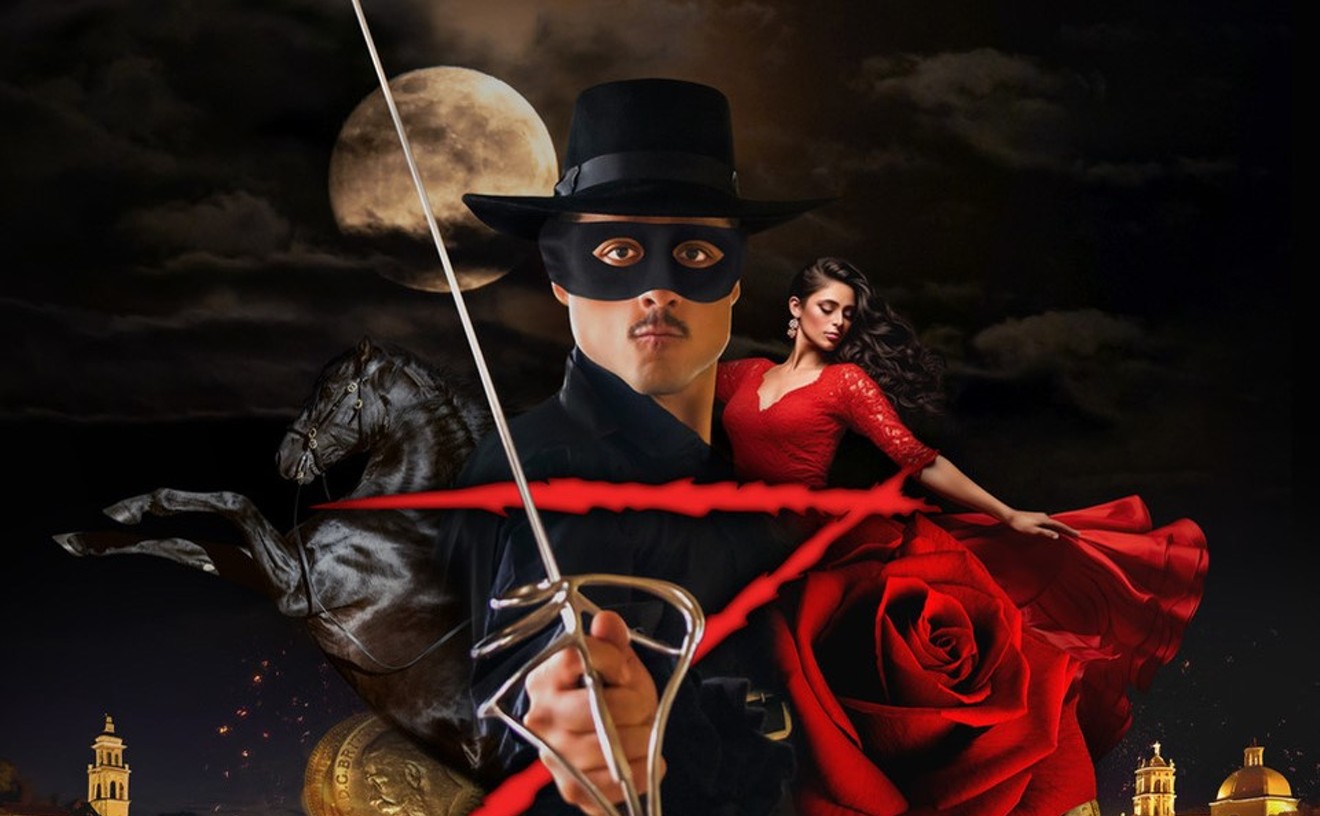Contemporizing Shakespeare isn't new, but it's become popular to the point where, today, an adventuresome Shakespeare production is one set in 16th-century England in which the players wear tunics and codpieces. Last season, I saw eight productions of seven different Shakespearean plays, and six of them were set in the 20th century. I saw Bianca in a bustier, Antonio talking on a cell phone, and Flavius flicking his Bic. I remember telling a friend one night on our way to see The Tempest, "I hope Caliban isn't wearing a pager this time."
Fans of modernized Shakespeare will tell you that if The Bard were writing today, his stories would be set in current times. But he isn't, and they aren't. And while dropping A Midsummer Night's Dream into Golden Gate Park may make it less intimidating to the masses, it also creates a potential dislocation between the language and the locale. Sticking the characters in faddish clothing and familiar places isn't enough, and imposing a concept on an ancient text rather than creating a world that supports that text can make for a hip, shiny Shakespeare that buckles under the weight of a goofy gimmick.
Only one of the three plays in Flagstaff's Grand Canyon Shakespeare Festival has been restaged in comparatively modern times. Jessica Kubzansky's Twelfth Night is set in jazz-age New Orleans, with much of the action taking place at Mardi gras.
"Shakespeare doesn't have to feel like a museum piece if it's fresh and alive and thrilling," says Kubzansky, a well-lauded Los Angeles-based director who--like many cast and crew members--was brought in to punch up the fledgling festival's appeal. "People are sometimes intimidated by his language, or the funny clothes; my job is to help people understand that there is no better theater than Shakespeare when it's done right. He's the most incredible storyteller, and his stories have all the components of great theater: The jokes are funny, the situations are serious, the sex is bawdy, and the love is painful. I want people to come and find this out for themselves."
Kubzansky's update maintains most of the original text and, to her credit, is actually enhanced by its modifications. Like Mardi gras, Twelfth Night's situations are sexy and gritty and a little ugly; by setting the story at America's best-known revel, Kubzansky captures the carnival of the last night of Christmas feasting and illuminates the story's lunatic theme. Her setting fits specifics of the story, as well: A shipwreck is plausible in New Orleans, a seaport town, and a jousting duel is more likely at Mardi gras, where drunken guests are more likely to be sporting scimitars and rapiers than elsewhere in 1920s America.
No matter how adept the adaptation, Shakespeare purists tend to frown on glossing over his perfect prose. "Yeah, okay, so Shakespeare scares people off," moans Jerry Ferraccio, whose SunFire Theatre is presenting Othello this month. "They hear that a show is three and a half hours long, and the language is 400 years old, and they run away." But Ferraccio, who's directing the show, believes the best way to make Shakespeare less frightening to freshman theatergoers is to drag the words to the footlights and hire actors who know how to speak them. His is a minimalist Othello, stripped to its foundation garments and made to succeed on the strength of its acting and its poetic language. "A few hand props and a couple of capes are all we're using," Ferraccio says. "Everything else is done with lights and with our voices. This is a very streamlined Shakespeare."
He isn't kidding. Although Ferraccio has only cut out about three pages of text (he's tossed out an intermission and an irrelevant clown), this Othello runs a tight two and a half hours. Iago's and Othello's best speeches are intact, but Ferraccio has pared down the usually overblown, overstaged fight scenes ("Hey, we're in Venice!" he shouts. "These are grubby little street fights!") and left what he calls "the essence of the play."
"The human condition hasn't changed a lot in the past 400 years," Ferraccio says. "Any actor or director who understands what Shakespeare is saying can contribute to the audience's understanding of the story. It isn't necessary to set Romeo and Juliet in 1997 and cast Leonardo DiCaprio in the lead to convince people to come."
Indeed, Ferraccio himself has resisted the temptation of casting a young stud as Othello, a mistake he says many directors make. "He's a potent warrior, and it's a sexy story, so people think Othello's a pinup. But he's supposed to be 50 and nearsighted, a guy who needs Iago to be his eyes. You go see the movie, and here comes Laurence Fishburne!" This time out, the middle-aged Moor is assayed by Ken Love, a seasoned Shakespearean actor who caught Ferraccio's eye as Claudius in an Arizona Shakespeare Festival production of Hamlet.
"I don't think theater professionals give their audiences enough credit," Ferraccio says. "They may not know Shakespeare's words, but they notice when the story doesn't fit the setting, and they leave thinking, 'Okay, I'm unsatisfied and I don't know why.'"
Kubzansky is willing to take chances--and liberties--to get Old Will's words past the footlights. "To make an audience feel they've lived the experience is the most important thing," says Kubzansky, who's headed next month for Scotland's Edinburgh Festival to direct Macbeth. "I want them to leave saying I know how it feels to have loved not wisely but too well."
Grand Canyon Shakespeare Festival's Twelfth Night plays (in repertory with The Tempest and Macbeth) through Saturday, August 1, at Northern Arizona University's Clifford E. White Theatre in Flagstaff. SunFire Theatre Company's Othello continues through Saturday, August 1, at Playwright's Theatre, 1121 North First Street. For more information, see the Stages listing.










